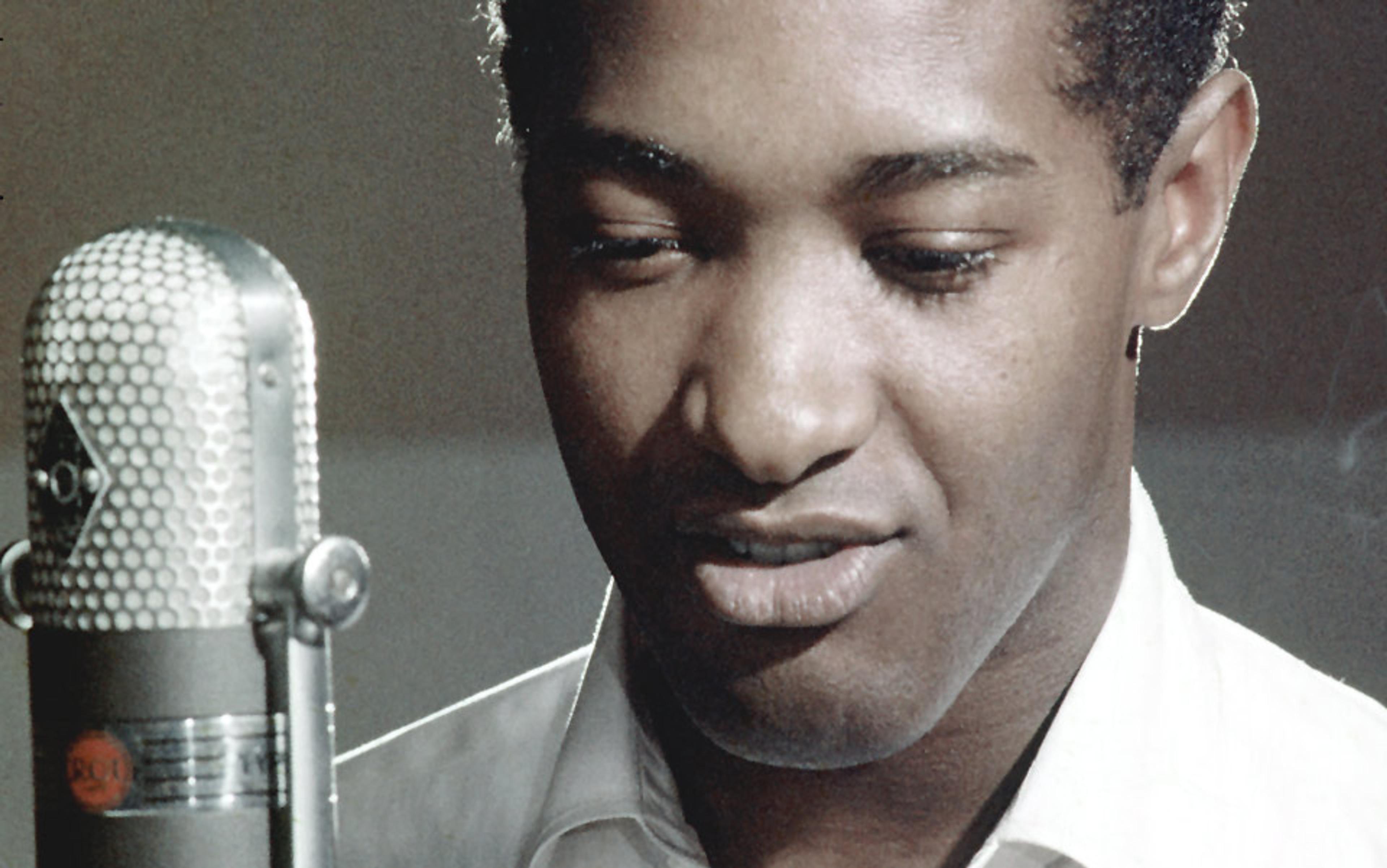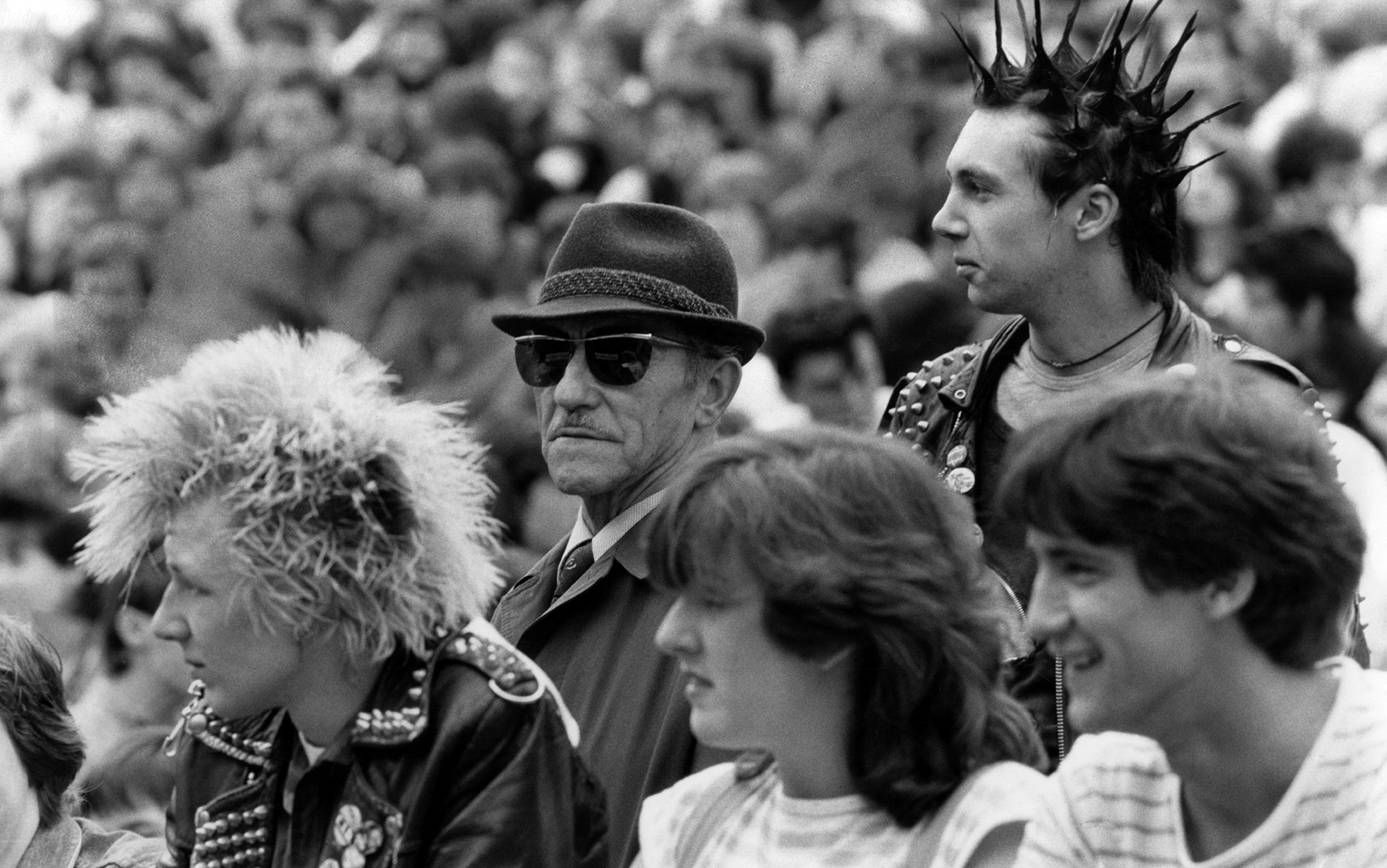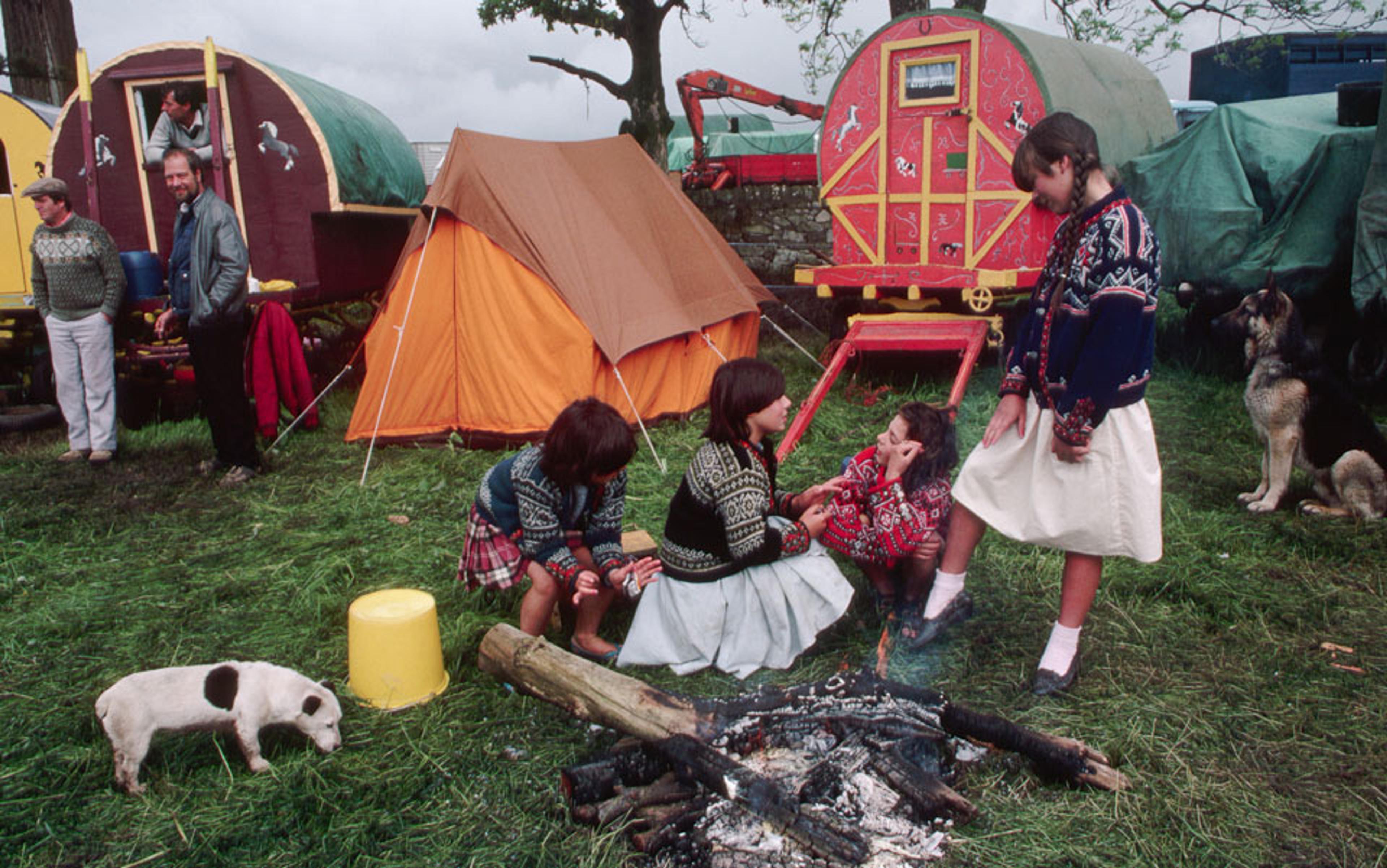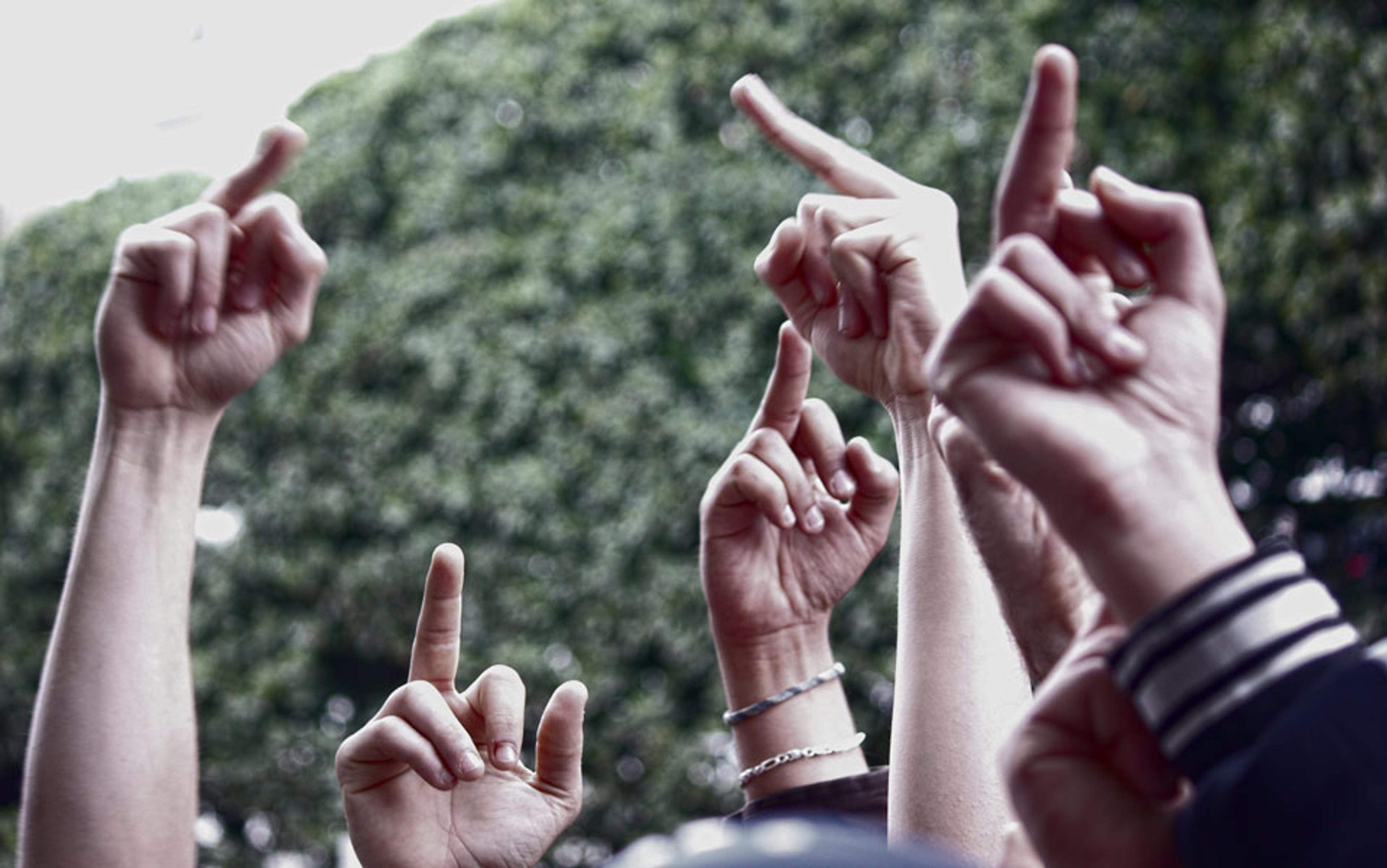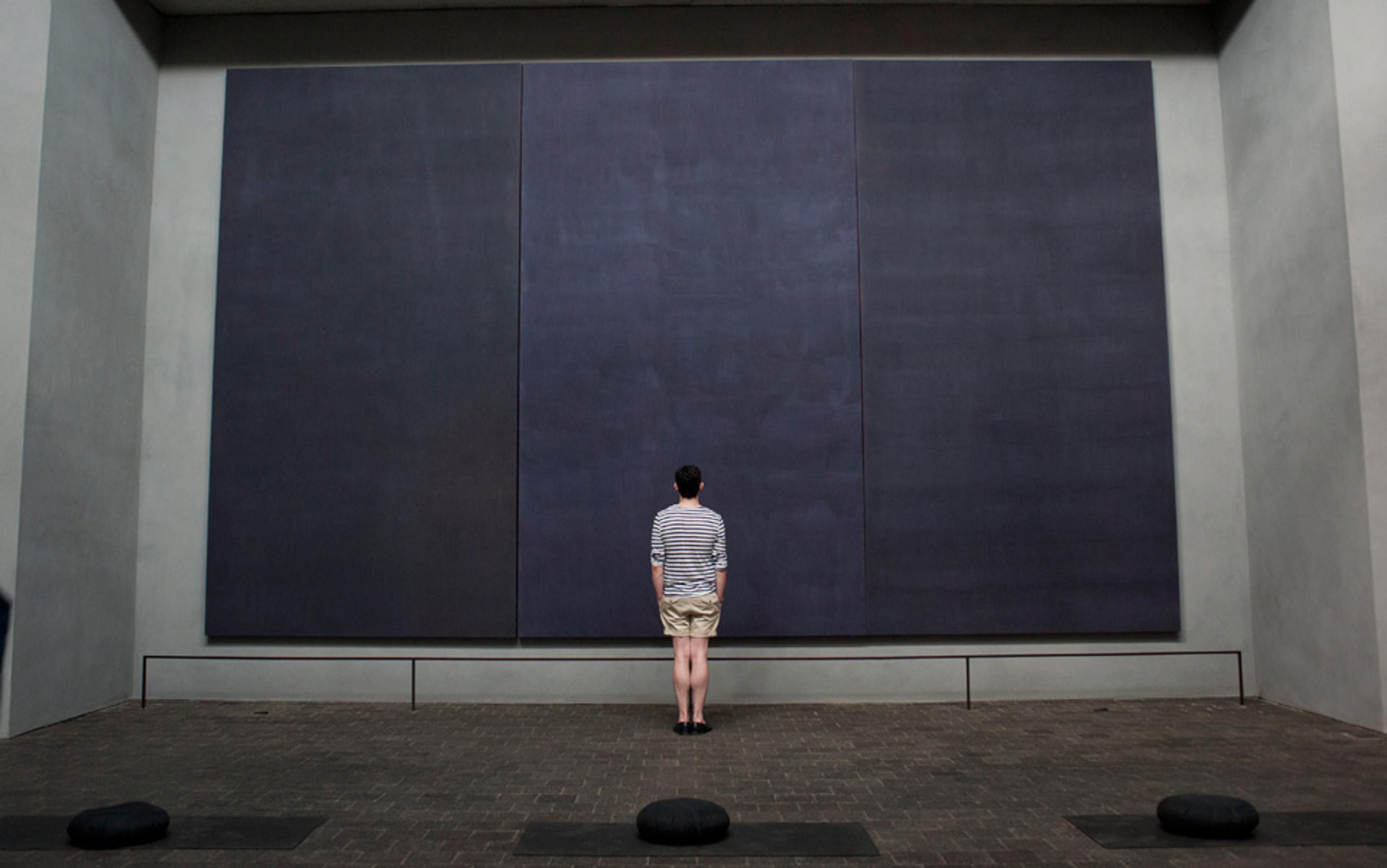In 1993, I, like so many young white people before me, discovered Sam Cooke. It was December. The dry, crisp cold of a California winter permeated the walls of my unremarkable family home. It was quiet. There were no waves at the beach.
I had heard Cooke’s hits, of course, grown up with them in the canon of popular music on radio stations, movie soundtracks, and old records belonging to grown‑ups. But only recently had I started listening to his music. Based on its cover art, I had bought a used copy of Night Beat (1963), an album that predated MTV’s Unplugged series by decades but delivered a similar bare-bones aesthetic.
At 17, anger was the prevailing emotion of my musical life. I already understood the extroverted rage of 1970s punk, 1980s gangsta rap and grunge. Cooke’s music was a challenge. His songs needed to be listened to – to be read closely – for me to understand their weight. He was slick – part pop, part gospel, part R&B – but beneath the clean vocal lines and period string arrangements I sensed something darker. The lyrics mixed racial politics with lovers’ woes. Most of his songs were about experiences I hadn’t had, but they still felt intimate, recognisable. I told my friends about them. They rolled their eyes and turned back to their Rage Against the Machine CDs.
Undaunted, I practiced the rituals of teenage fandom alone: I bought all Cooke’s greatest hits compilations, then searched used record shops for the original albums. I dog-eared Sweet Soul Music (1986), Peter Guralnick’s book about the ascendance of Southern soul (his massive biography, Dream Boogie: The Triumph of Sam Cooke, wouldn’t be published till 2005). I spent hours staring at CDs and album covers, marvelling at the squeaky-clean cut of Cooke’s jawline and giggling at the dated graphic design. And I took to the living room floor, cuddling with my dusty plastic boom box and pressing ‘play’ again and again.
To listen to the song A Change Is Gonna Come (1964) closely for the first time – with your head touching the speakers and the crackle of electricity from the living room carpet humming beneath you – is to feel the potential of music made in protest. When I happened upon the song at the end of an otherwise average ‘greatest hits’ compilation, I began to understand how a piece of music can affect a feeling of transformation.
The story about the song is that Cooke heard Bob Dylan sing Blowin’ in the Wind (1963), and wrote A Change Is Gonna Come as a response and a call-out, both to Dylan and himself. The way Cooke saw it, a black man should be singing stuff like that, not some white kid from suburbia. By then, Cooke had crossed over from his gospel roots into mainstream success. He owned his own record label and controlled his career. But he lived with the paradoxes of black stardom.
In late 1963, Cooke and his bandmates had tried to check into a hotel in Shreveport, Louisiana and been refused. They made a fuss, were arrested and jailed. A Change is Gonna Come was recorded in February 1964 in a session produced by Hugo Peretti and Luigi Creatore, and was quietly included on Cooke’s album Ain’t That Good News (1964). As Guralnick chronicled in Dream Boogie, after the session, Cooke played the song for Bobby Womack, who was Cooke’s protégé. Womack said the song sounded like death. On 22 December 1964, A Change Is Gonna Come was finally released as a single. Eleven days earlier, Cooke had been shot and killed at a Los Angeles motel, in what was later ruled a justifiable homicide.
The song wasn’t a tremendous commercial hit; it topped out at number 31 on a Billboard chart in 1965. But it became an anthem of the Civil Rights movement and remains an enduring symbol of that era of protest. It was Cooke’s last, and perhaps most lasting, song.
When a piece of art skews too heavily towards rhetoric or sloganeering, the effort often lands cold
It is an unlikely protest song: it is not rough, angry, or street-level. The dramatic backing orchestration invokes glitzy nightclubs and movie palaces, not barricades and lunch-counter sit-ins. Cooke’s purest-of-the-pure voice slides through the strings and timpanis like a three-olive martini slides down your throat. The arrangement, by René Hall, builds and crests atop an obvious sense of its own importance. This is a big song, the production tells us. But when Cooke sings, he does so in an understated first person, narrating everyday scenes of injustice. Each verse culminates in a simple chorus in which Cooke repeats the eponymous line: ‘A change is gonna come.’ The invocation of potential, of change, is undeniable in the way Cooke lingers on the words ‘long’ and ‘know’, the way he revolves the phrase:
It’s been a long
a long time comin’
but I know-oh-oo-oh
A change gonna come
Oh yes it will
It is both prayer and warning.
One of the reasons it’s difficult to make successful art about social change is because people experience injustices as people, not as movements or policies or messages. When a piece of art forgets that and skews too heavily towards rhetoric or sloganeering, the effort often lands cold.
What makes this song work isn’t Cooke’s vocal stylings or the timing of its release. It is so politically potent because it sounds so personal. Cooke stepped back from the royal ‘we’ and the broad metaphoric strokes that folk singers such as Dylan used to gather their audiences to the cause. He didn’t say: ‘Meet me in Alabama and we’ll do some civil disobedience to fight for our rights!’ He said: ‘I was born by the river in a little tent.’ He said: ‘I go downtown and somebody keep telling me, don’t hang around.’ He said it’s been too hard, living like this. So let’s not do it anymore.
Not long after I first fell for Sam Cooke, I moved to Paris, where an American boy broke my heart. It was December: the sky over pointy rooftops and grand façades was always grey, a few times dusting my nose with translucent snow.
That same week, a general strike against public-sector cuts broke out across the country. The strike shut down the Métro, the post office, all but a few extra-urban trains, and even the Louvre. Suddenly, at all times of day, Parisians were out on the streets in large numbers. People who would normally be in taxis, on subways, or in offices thronged the sidewalks. They walked or hitchhiked to work if they were still working, and they protested if they weren’t, overfilling the streets in the process.
There was not much for a newly arrived American to do without a subway or civic attractions, so I found myself walking the streets with the locals. From the apartment where I stayed, in the 19th arrondissement, I walked across town to Montmartre. I walked across the Seine multiple times a day. I walked when I didn’t have a destination, and when it rained, and at 2am when it wasn’t very safe.
When I got cold, I stopped at cafés or kebab spots. When I was lonely, I ducked into one of the small art-house theatres that dotted the Left Bank, watching my old American friends Humphrey Bogart and Clint Eastwood in macho, black-and-white versions of the romance and the home I had somehow found myself without. I had a Walkman cassette player and just a few of my favourite tapes, and I listened to Cooke sing A Change is Gonna Come over and over as I walked, rewinding until I wore the tape thin and drained the expensive AA batteries I didn’t know how to ask for in French at the tabac.
in the Bastille district I found myself inside a tremendous demonstration, one of hundreds of thousands of people marching and loudly objecting to the way things were
I was 19, heartbroken, and always lost. It feels almost trite now, in adulthood, to look back on a particular emotional pain of my youth and say, I thought I was going to die, it hurt so bad. It verges on humorous, how breezily I can chronicle all the places I cried in Paris: phone booths and doorways; churches and bookstores; the small twin bed next to the paper-thin wall in my host’s apartment; the shared half-bath.
During those months in Paris, my calves shook constantly. I stumbled on stairs and ground my molars into ruin. Deep inside that place of heartbreak, A Change Is Gonna Come became my own personal protest song, a new kind of break-up ballad whose lyrical determination suggested – no, insisted – that I prepare for something better. The hope and almost naive expectation contained in Cooke’s words – I know, someday – was more reassuring than a lullaby.
The pain and hardship he sang of was not my pain, but I could easily transpose my own hurt onto his lyrics. That’s what pop songs are for. They are templates for selfishness, allowing us listeners to take a singer’s heartache for our own. Of course, on some level, I knew that my romantic angst was not a matter of civil rights. Even while I felt my own emotional struggle so palpably in Cooke’s oohs and aahs, I could never know what it was like to live as a black person in the South in the mid-century US, or anywhere.
I could, however, listen.
It was in Paris on one of those cold grey mornings that I stumbled into my first political protest. On my daily promenade, the air threatened snow again. There seemed to be even more people out than usual. As I turned down the Rue de Belleville and approached the Place de la République, in the Bastille district I found myself inside a tremendous demonstration, one of hundreds of thousands of people marching and loudly objecting to the way things were.
I remember the pressure of other people’s bodies feeling pleasantly warm. I remember not understanding what people were saying to one another but still understanding its sentiment. I remember being startled by the everydayness, the normality of the protesters – people who looked like my politically Left-leaning friends, but also like my friends’ parents, and middle managers, and taxi drivers, and doctors. They were old and young, racially diverse, and they were all singing and chanting, melodious and angry at the same time.
As I pressed in to the centre of the protest, Marianne de la République peeked over the crowds. Someone had tacked a sign on the statue’s chest that said ‘solidarité’ and I wondered if that word meant something different in French, something beyond a term used within the labour movement.
It was my first time out of the US, and now I realised how divided, how complaisant a place I came from. I didn’t know there were places where professionals protest in the streets right alongside those who work for them; that solidarity, healthcare and vacations were things in which they all took an interest. I wondered what strange place I’d wandered into, where there was a middle class who felt comfortable shutting down a city to make their power known, who not only weren’t afraid to ask for more, but knew they had a right to.
for the first time in my life I felt it, there, in a moment of private, personal pain and public, political upheaval: something bigger
I kept walking, along my daily route across the city. I walked past the plaza outside the Hôtel de Ville where Robert Doisneau once photographed a couple kissing. I traversed the small island in the Seine where the cathedral of Nôtre Dame sits. I ended up near the Sorbonne, where the protests were more confrontational. Groups of black-clad young people threw rocks and Molotov cocktails into the windows of storefronts. Everyone seemed to be running in opposite directions, and the beep-beep of European sirens blared their own dissonant song.
Snow formed and failed, and tried again to form. I stuck to the margins of the action and kept walking. I put my headphones on. The shiny black of a gendarme’s baton caught my eye as he passed me at arm’s length, chasing a young man wearing a hooded sweatshirt. The smell of teargas drifted across the avenues. Sam Cooke sang. And for the first time in my life I felt it, there, in a moment of private, personal pain and public, political upheaval: something bigger. Pressed close by bodies in the bustling mosh pit of protest, my imagination enfolded by the music I imbibed, I shivered into a rudimentary understanding that there is a world beyond my own heartbreak. There are hearts that are struggling just for the right to keep beating. That’s what protest music is for. It can allow people to connect private pain with public injury – to shout it from the barricades or smuggle it inside a sliding rhyme.
To be effective, such resistance must be sustained, like a sweet note on an old record from a long-ago era that still ricochets inside your veins. It remains to be seen whether new generations of classic protest songs will emerge from the current US unrest in response to racism and police brutality. Recently, the musical polymath Questlove put out a public call for new protest songs: ‘Songs with spirit in them. Songs with solutions. Songs with questions. Protest songs don’t have to be boring or non-danceable or ready-made for the next Olympics. They just have to speak truth.’
At a time when it feels like every city in the US, every day, is about to explode in rebellion against the devaluation of black people’s lives, Questlove is challenging artists to keep up. On this particular day, however, I’ll be pulling out my Sam Cooke records and looking back. Perhaps we already have the songs we need for this moment, because this moment is a continuation of the one Cooke soundtracked in A Change Is Gonna Come. Fifty years later, the song remains the same.
